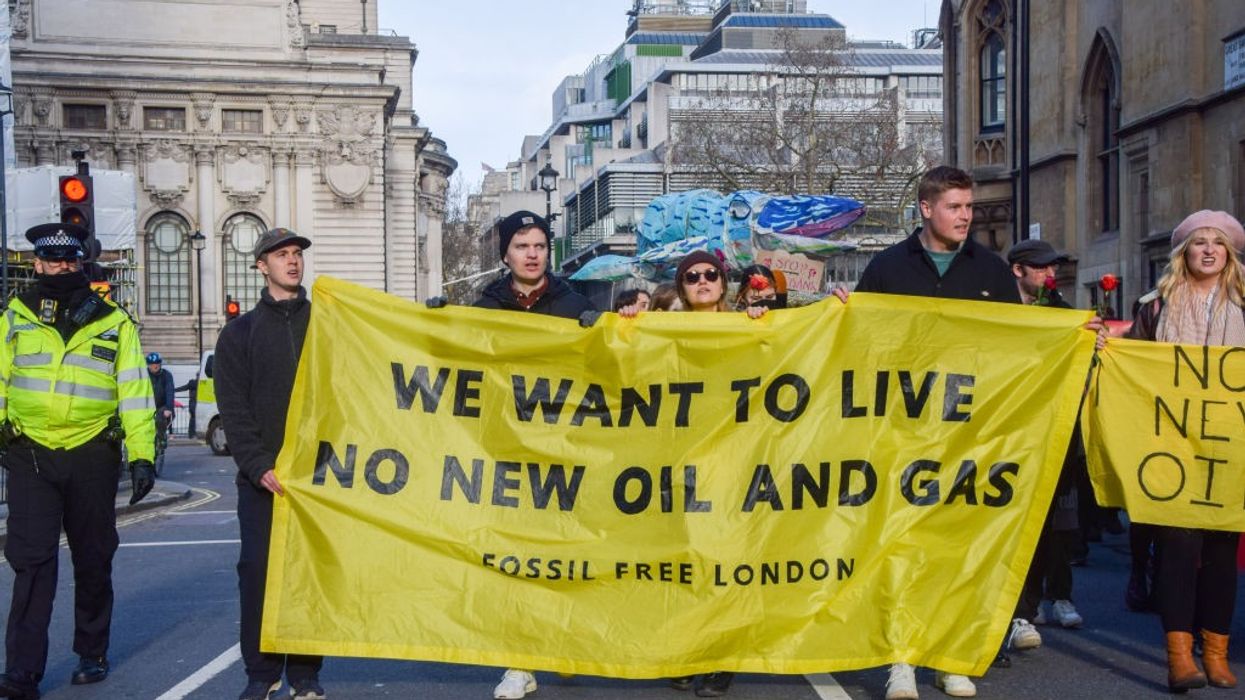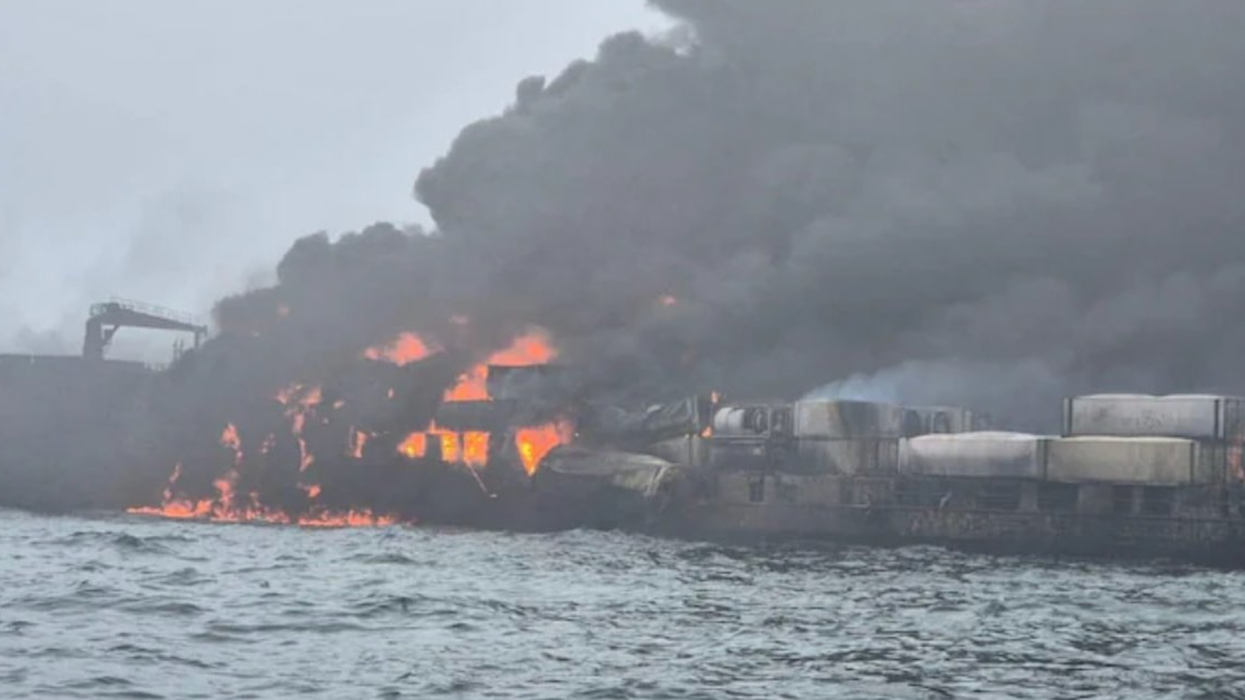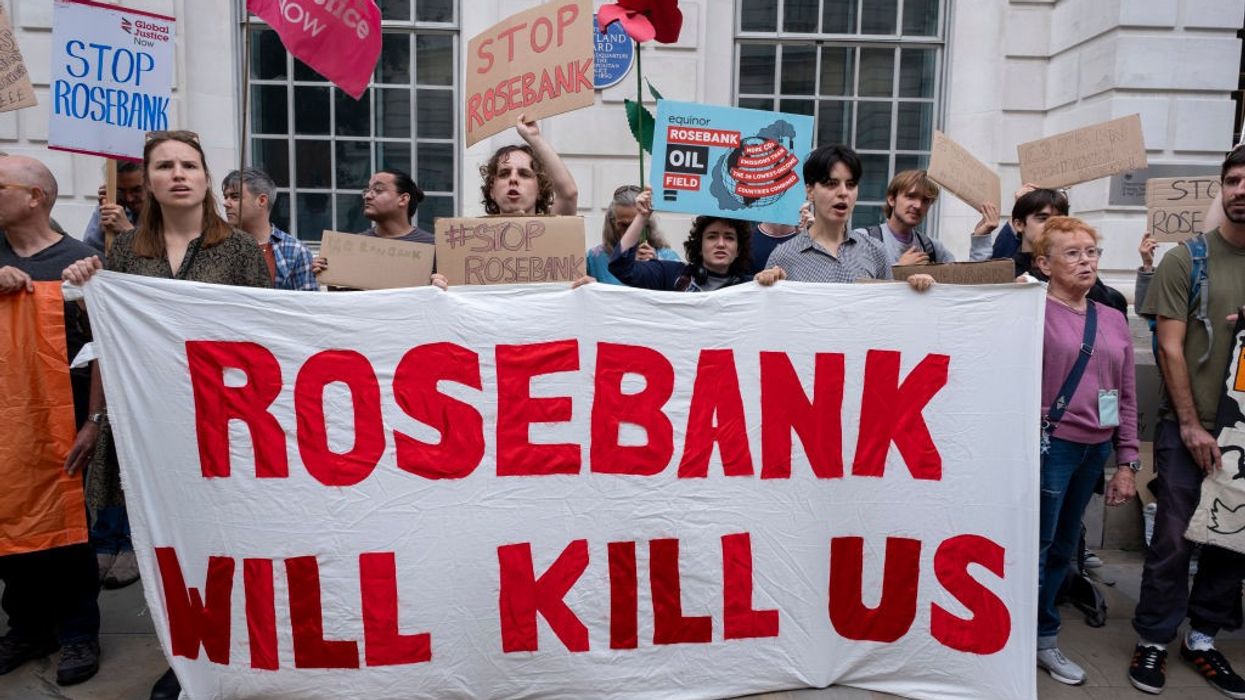'Climate Vandalism, Pure and Simple': Defiant BP to Reopen North Sea Oil Field
"The only sensible thing to do is to pivot the North Sea to something we have an abundance of, and something that will never run out—wind," argued one climate advocate.
As the United Kingdom on Monday faced the onset of its fourth heatwave of this summer, climate campaigners continued to call out BP for its decision to plow ahead with reopening the Murlach oil field in the North Sea, despite fossil fuels pushing up global temperatures and the U.K. government's efforts to limit extraction in the region.
"This is climate vandalism, pure and simple," Kate Blagojevic, Europe team lead at the group 350.org, said in a Monday statement. "BP is putting its profit margins above the survival of communities, ecosystems, and future generations. Every barrel of oil from this project pushes us closer to climate breakdown, more floods, more fires, more heatwaves."
"The era of fossil fuels is over, and BP's desperate attempts to wring out the last drops of oil from the North Sea are a reckless betrayal of the public and the planet. They should be winding down, not doubling down," she declared.
Greenpeace U.K. policy director Doug Parr was similarly critical, saying in a statement that "the North Sea is on death's door. Reserves are drying up, and what's left and untapped is barely enough to keep it on life support."
The Telegraph on Sunday noted recent research from the government's North Sea Transition Authority that found there were over 3 billion barrels of oil and gas in fields already in production, 6 billion barrels in known potential developments, and 3.5 billion barrels in identified exploration zones.
According to the newspaper, BP said the Murlach field contains 20 million barrels of recoverable oil and 600 million cubic meters of gas, and is "expected to produce around 20,000 barrels of oil and 17 million cubic feet of gas per day," due to new technologies that weren't around when it was shut down over two decades ago.
Parr said that "3 billion barrels wouldn't last more than a few years at current rates of consumption, and even that assumes it is economic to extract. Whatever the political rhetoric, the oil and gas is pretty much gone, and soon, so too will the jobs of thousands of workers."
"Unless we want to remain dependent on overseas imports and watch an entire industry collapse with no plan for workers," he added, "the only sensible thing to do is to pivot the North Sea to something we have an abundance of, and something that will never run out—wind."
Although the U.K's current Labour Party leaders have pledged to avoid new licensing for fossil fuel projects in the North Sea, "BP won agreement to reopen Murlach, 120 miles east of Aberdeen, under the previous government and has since been installing equipment, with production potentially restarting next month," The Telegraph explained.
A spokesperson for Ed Miliband, U.K. secretary of state for energy security and net zero, said Sunday that "we are committed to delivering the manifesto commitment to not issue new licences to explore new fields because they will not take a penny off bills, cannot make us energy secure, and will only accelerate the worsening climate crisis."
"We are delivering a fair and orderly transition in the North Sea, with the biggest ever investment in offshore wind and two first-of-a-kind carbon capture and storage clusters," the spokesperson added.
Miliband in June announced new guidance for environmental impact assessments of proposed oil and gas projects in licensed fields, which came in response to last year's landmark U.K. Supreme Court ruling. After that decision, Judge Andrew Stewart of Scotland's Court of Session ruled in January that Equinor and Shell, which are respectively behind the Rosebank oil and gas field and the Jackdaw gas project, can't move ahead with extraction.
The June guidance means offshore developers can now submit applications for extractions in fields that are already licensed, including Rosebank and Jackdaw. In response to that development earlier this year, Mel Evans, Greenpeace U.K.'s head of climate, said that "it's only right for the government to take into account the emissions from burning oil and gas when deciding whether to approve fossil fuel projects currently pending."
"Since Rosebank and other drilling sites will pump out a lot of carbon while providing little benefit to the economy and no help to bill payers, they should fail the criteria ministers have just set out," Evans added. "Real energy security and future-proofed jobs for energy workers can only come through homegrown, cheap renewable energy, and that's what ministers should focus on."


